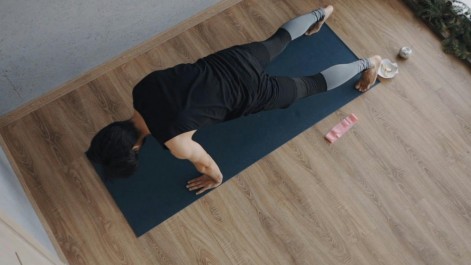Aging Skin and Beauty Therapies
By Nataliya Slesarenko
Ageing affects all organs of the body but is more visible in skin. The genes you inherit, your ethnicity, the environment you live in, how you care for your skin and your general health all influence skin ageing.
Skin aging differs in men and women. From the age of 70 onwards women’s immune function reduces, making them more susceptible to infection. Sensitivity to UV increases and skin is prone to age spots. Regeneration slows down and skin becomes thin with loss of elasticity. Wound healing is also impaired. These changes are the result of decreases in ability to produce lipids (regulated by oestrogens) plus the decline in hyaluronic acid and collagen production. The result is dry, dehydrated skin with deep wrinkles.
Ageing occurs later in males. Men are mainly affected by sagging skin, puffy eyes and dark circles that make them look tired. Male wrinkles occur later than female wrinkles but, when they do appear, they are fully grooved.
Dry skin is a common problem for people over 65 years old who are more vulnerable to cracking skin and sensitive to bacterial, fungal, and viral infections.
Pruritus is an unpleasant sensation of the skin that urges scratching and can be attributable to anti-hypertensives, antibiotics, diuretics and psychotropic medication. It is related to diseases and conditions like diabetes, thyroid disease and renal failure.
Skin infections from skin fragility are pressure ulcers, moisture-related skin damage (due to incontinence, stomas, mechanical factors, etc.), fungal infections (tinea, candida), viral infections (shingles), parasites (scabies). The physical impact of skin disease is pain, itching and sleep disturbance. Dermatological conditions associated with disease affect other systems like psoriasis and psoriatic arthropathy.
The psychological impact of the ageing skin includes loss of confidence, depression and anxiety, problems with interpersonal relationships and restriction of leisure activities. This can also impact on family members - particularly Carers.
Beauty treatment to damaged skin should be avoided (cuts, bruises, haematoma), infectious skin diseases (risk cross-infection), fungal or viral diseases, non-infectious skin disorders like eczema or dermatitis, recent sunburn and localised swelling and inflammation. Before providing beauty treatments for people with less visible contra-indications like chronic diabetes, epilepsy, cardiovascular conditions, asthma and lung conditions, high temperature, contagious or infectious disease, allergies, recent fracture (min 3 months) obtaining a doctor’s approval is recommended.
For the clients’ comfort and taking into consideration possible risk factors, the care should be focused on relaxation techniques for pain relief and stress management rather than on beautification and smoothing wrinkles.
The key in skin care for the elderly is nutrition and moisturising. Facial skin care may follow different goals and use different steps, techniques and ingredients:
- Treatments for dry and discoloured skin includes nutrition and moisturisation (procedure includes use of appropriate masks, emollients and moisturisers)
- Aroma and relaxation treatment includes massage with cream mask or aroma oil
- Facial massage for relaxation using light techniques to avoid any damage
- Seasonal procedures, such as cooling for summertime with mint products, nutrition with reach products for winter and moisturising for all seasons
Beautification may include hair removal procedures, but a specialist must take special care for the skin of an older person as hair removal is quite aggressive and can cause significant damage and discomfort. Unwanted hair in the elderly should be plucked. If removing hair, fix the skin to avoid tears. Waxes are preferred by younger generations but not recommended for people in their 80’s and 90’s.
Unpleasant skin conditions in elderly people significantly impacts their quality of life. Preventive skin care and timely treatment will help to improve their physical and mental health and wellbeing.
Back to Blog








